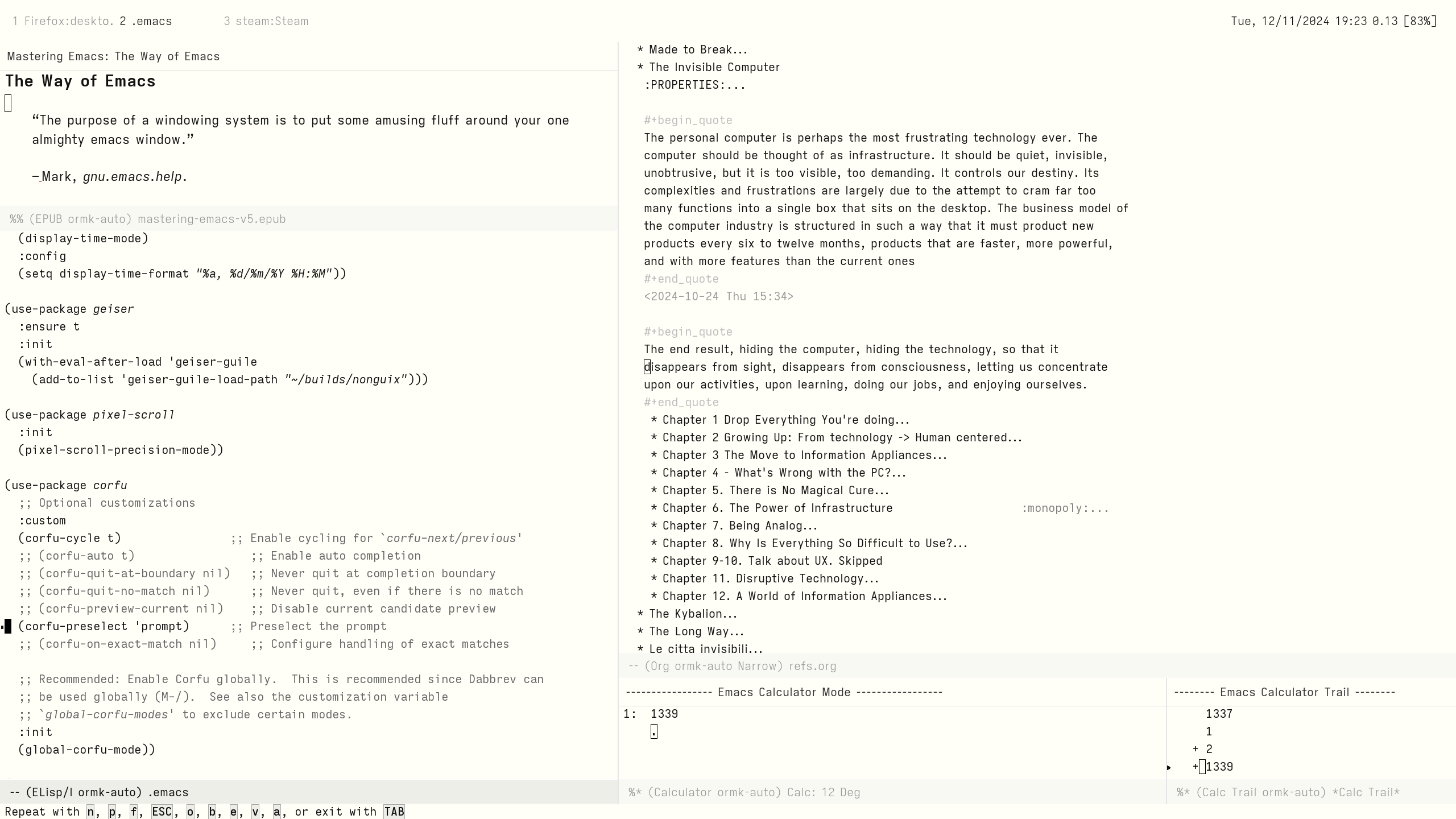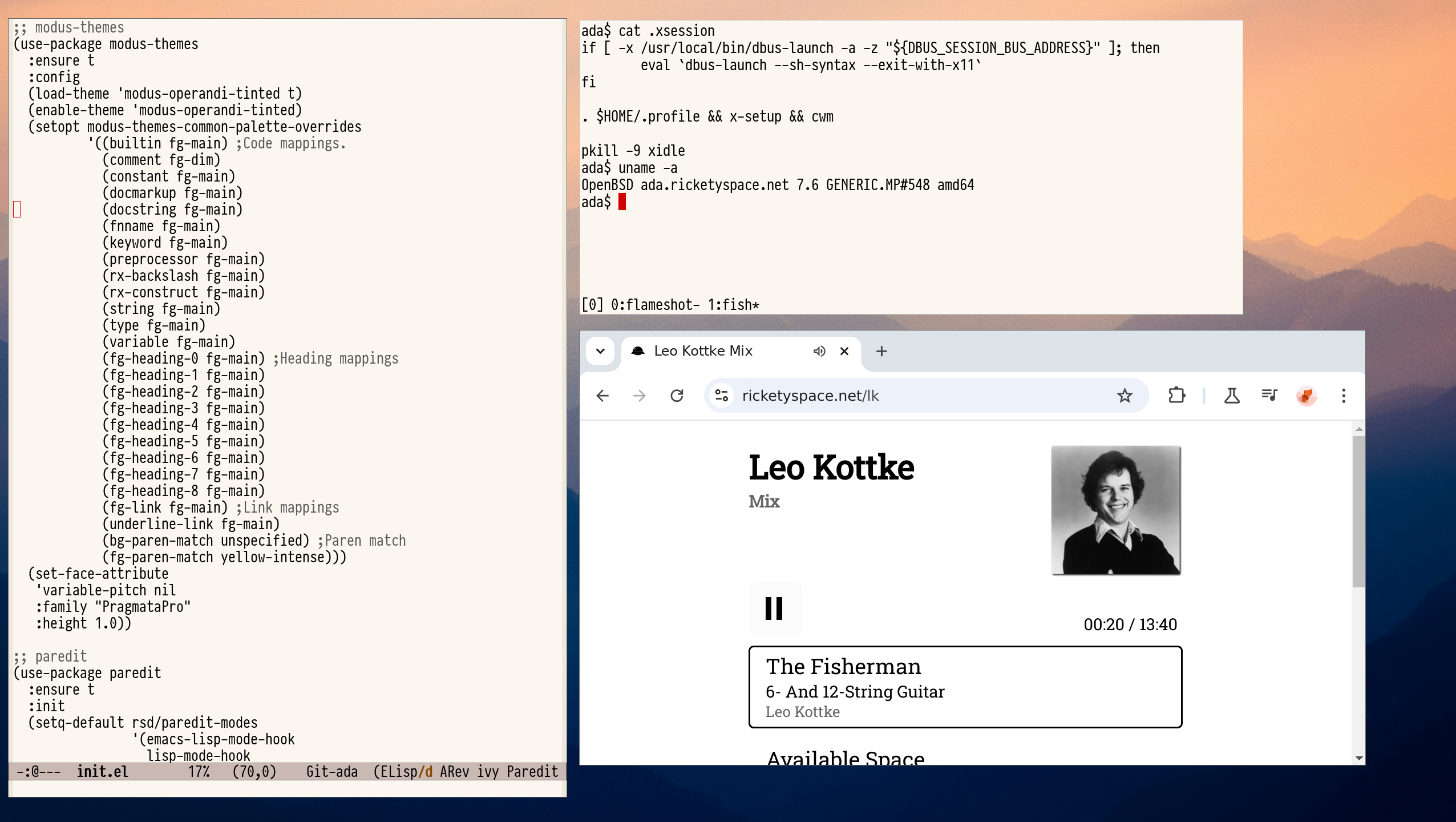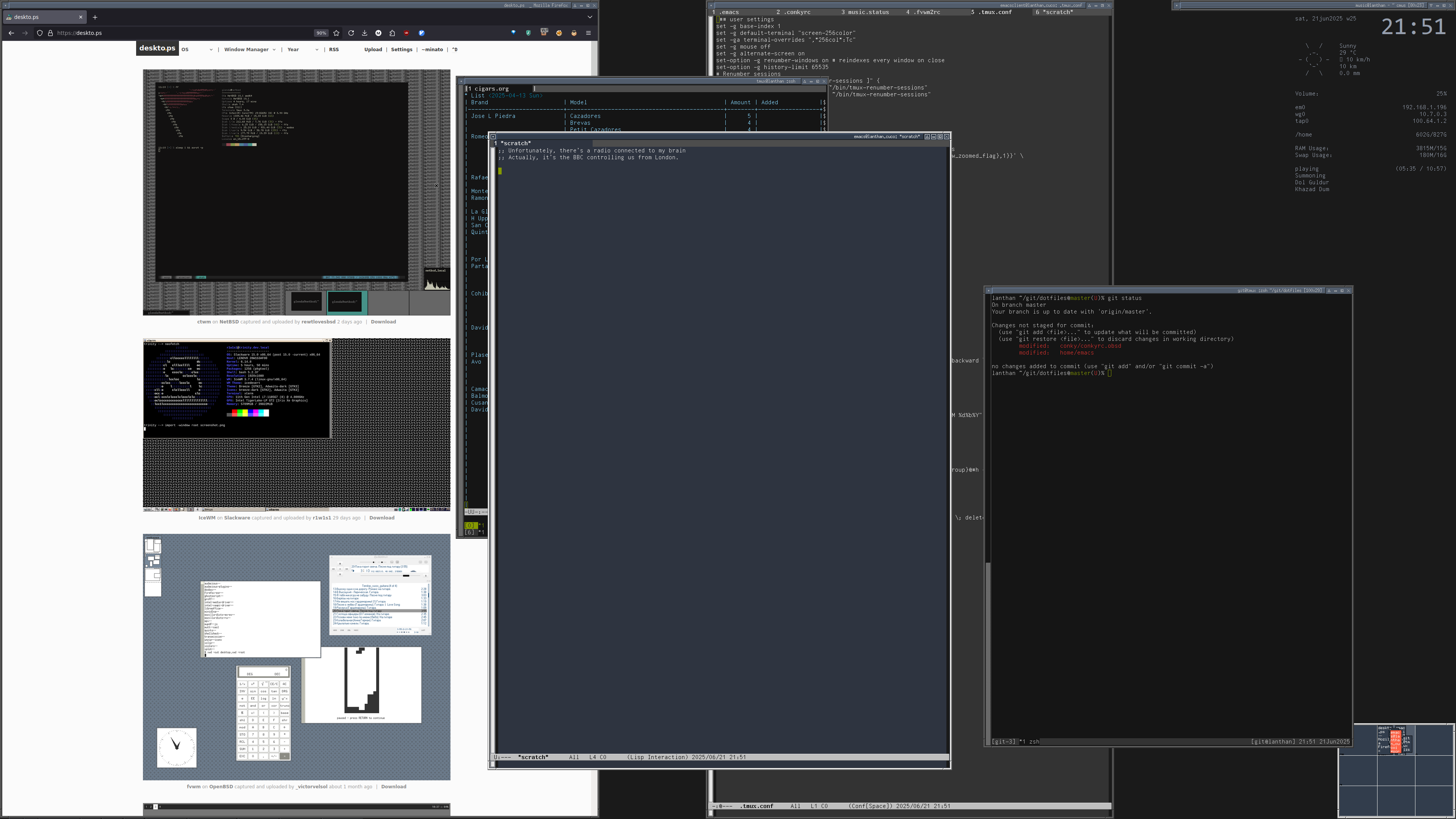Here's the thing about Emacs: it's not just different from other editors, it's from a completely different universe. While VS Code and IntelliJ bolt scripting onto the side, Emacs IS scripting. The editor is literally just a user interface for a Lisp environment that's been running continuously since the 1980s.

The Learning Curve That Almost Broke Me
When I switched from VS Code, it took me three weeks to stop accidentally hitting Ctrl+S. The keybindings are absolutely insane until you memorize them - C-x C-f to open a file? What sadist designed this? But here's the kicker: once you learn them, everything else feels sluggish and clunky.
I spent my first month constantly googling "how to exit emacs" (it's C-x C-c, by the way). The documentation assumes you already know everything. Stack Overflow became my lifeline. But around week four, something clicked. I wasn't fighting the editor anymore - I was programming it to think like me.
It's Fast Now (Finally)
Emacs 30.1 fixed the one thing everyone complained about: startup speed. Native compilation is enabled by default, which means your Lisp code gets compiled to actual machine code instead of being interpreted every time. My editor boots in 0.3 seconds now on my ThinkPad X1 with an SSD, which sounds fast until you compare it to Notepad, but whatever.
The performance boost is real though. Operations that used to stutter now feel instant. GccEmacs provides noticeable improvements across the board. It only took 40 years, but Emacs finally runs as fast as it should have all along.
Actually Competitive with Modern IDEs
Here's where it gets interesting: Emacs now has Eglot built-in, which means language server support without installing anything extra. Tree-sitter makes syntax highlighting actually work properly. The debugging experience doesn't suck anymore.
I can do everything in Emacs that I used to do in JetBrains IDEs, except it doesn't eat 2GB of RAM like IntelliJ IDEA does on my machine (yes, I actually measured). Want a keybinding to compile your code and open a terminal? Two lines of Lisp. Want custom syntax highlighting for your company's weird config format? Twenty minutes of Lisp.
The Rabbit Hole Goes Deep

But here's where Emacs gets truly weird: it's not just a text editor. People run their email in it. They manage their calendars in it. I know developers who haven't touched a terminal emulator in years because they do everything through Emacs shells.
Org-mode alone is worth the price of admission - it's like Notion but infinitely customizable and it exports to everything. I plan projects, track time, write documentation, and manage my todo list all in plain text files that sync everywhere.

Why I Stick With It
After two years of daily Emacs use, I can't go back. Every other editor feels like it's fighting me instead of working with me. When VS Code or IntelliJ can't do something, you're stuck. When Emacs can't do something, you write ten lines of Lisp and make it do whatever the hell you want.
The community is weird but helpful. Emacs StackExchange is full of people showing off configs that would take other editors years to implement, if ever. Everyone has their own completely custom setup, and somehow it all works together.
Is it worth the learning curve? If you like programming your tools instead of just using them, absolutely. If you just want to edit code and get on with your life, stick with VS Code.
